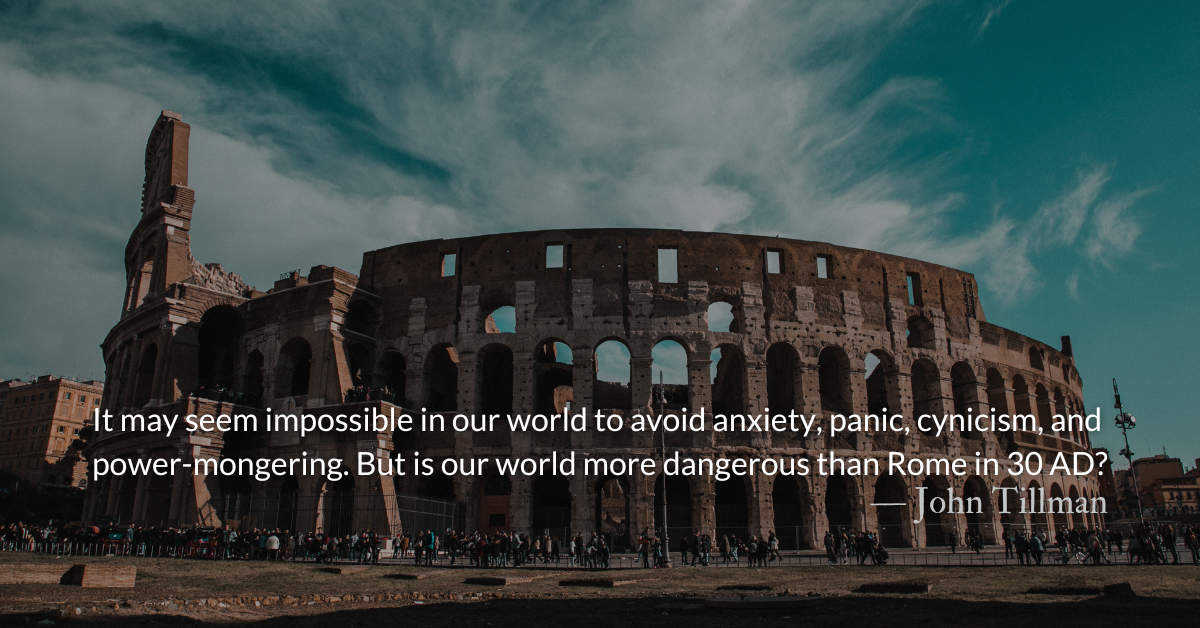Scripture Focus: Zechariah 12.3
3 On that day, when all the nations of the earth are gathered against her, I will make Jerusalem an immovable rock for all the nations. All who try to move it will injure themselves.
Luke 21.5-11
5 Some of his disciples were remarking about how the temple was adorned with beautiful stones and with gifts dedicated to God. But Jesus said, 6 “As for what you see here, the time will come when not one stone will be left on another; every one of them will be thrown down.”
7 “Teacher,” they asked, “when will these things happen? And what will be the sign that they are about to take place?”
8 He replied: “Watch out that you are not deceived. For many will come in my name, claiming, ‘I am he,’ and, ‘The time is near.’ Do not follow them. 9 When you hear of wars and uprisings, do not be frightened. These things must happen first, but the end will not come right away.”
10 Then he said to them: “Nation will rise against nation, and kingdom against kingdom. 11 There will be great earthquakes, famines and pestilences in various places, and fearful events and great signs from heaven.
Reflection: Our Immovable Rock
By John Tillman
Zechariah spoke to those who had gone through exile and captivity. They knew what it meant for armies to gather, the city to fall, and the walls to be destroyed and burned. They heard their parents’ tales and tasted the fear and uncertainty. God’s words reassured these people that, in the future, no gathering of armies will be able to overcome Jerusalem, the shelter of his people.
Jesus spoke to his disciples, suffering under Roman occupation and puppet kings like Herod. Herod was “king”, but all were forced to say “Caesar is Lord.” They longed for liberation.
The Temple Zechariah knew was renovated and expanded by Herod. The disciples were impressed with the stonework in Herod’s expansion. If they had read Zechariah’s words at that moment, they would probably have thought that they were living in the time of their fulfillment. We know they expected Jesus to become king. We can easily imagine that they hoped to see Jerusalem become the immovable rock that Rome and every other enemy would break themselves against.
But instead of speaking of armies breaking against Jerusalem, Jesus spoke of Jerusalem being broken. Even the Temple’s impressive stones would be cast down, not one of them left on another.
Eschatological anxiety has waxed and waned in my lifetime. It’s easy for us to go to extremes on this issue. Some panic that the end is near and then, when it seems delayed, lose faith. Some throw their hands up in cynical doubt that the day will ever come. Some seek to bring the day to pass by taking the reins of power into their own hands. They long to build whatever kingdom they can using hastily baptized political power.
Christ told his followers to not be easily taken in by messianic movements. He warned them against fear and reactionary haste and encouraged patience.
It may seem impossible in our world to avoid anxiety, panic, cynicism, and power-mongering. But is our world more dangerous than Rome in 30 AD?
“Do” is easier than “Don’t.” Instead of thinking, “Don’t be anxious,” concentrate on resting in Jesus. Resist panic by resting in hope. Wrestle in prayer rather than for power. What Christ will establish will not depend on our power or wisdom but on his.
Remember that our immovable rock is not an institution, movement, country, or leader. Jesus is our immovable rock.
Divine Hours Prayer: The Greeting
The Lord lives! Blessed is my Rock! Exalted is the God of my salvation! — Psalm 18.46
– From The Divine Hours: Prayers for Summertime by Phyllis Tickle.
Today’s Readings
Zechariah 12-13.1 (Listen 2:30)
Luke 21 (Listen 4:18)
Read more about Fasting Uncovers Our Hearts
If all we get from fasting is a measurable, earthly ROI, we will be unlikely to reap a spiritual benefit.
Read The Bible With Us
Our two-year Bible reading plan encourages moments of reflection at a sustainable pace. It’s never too late to join.











